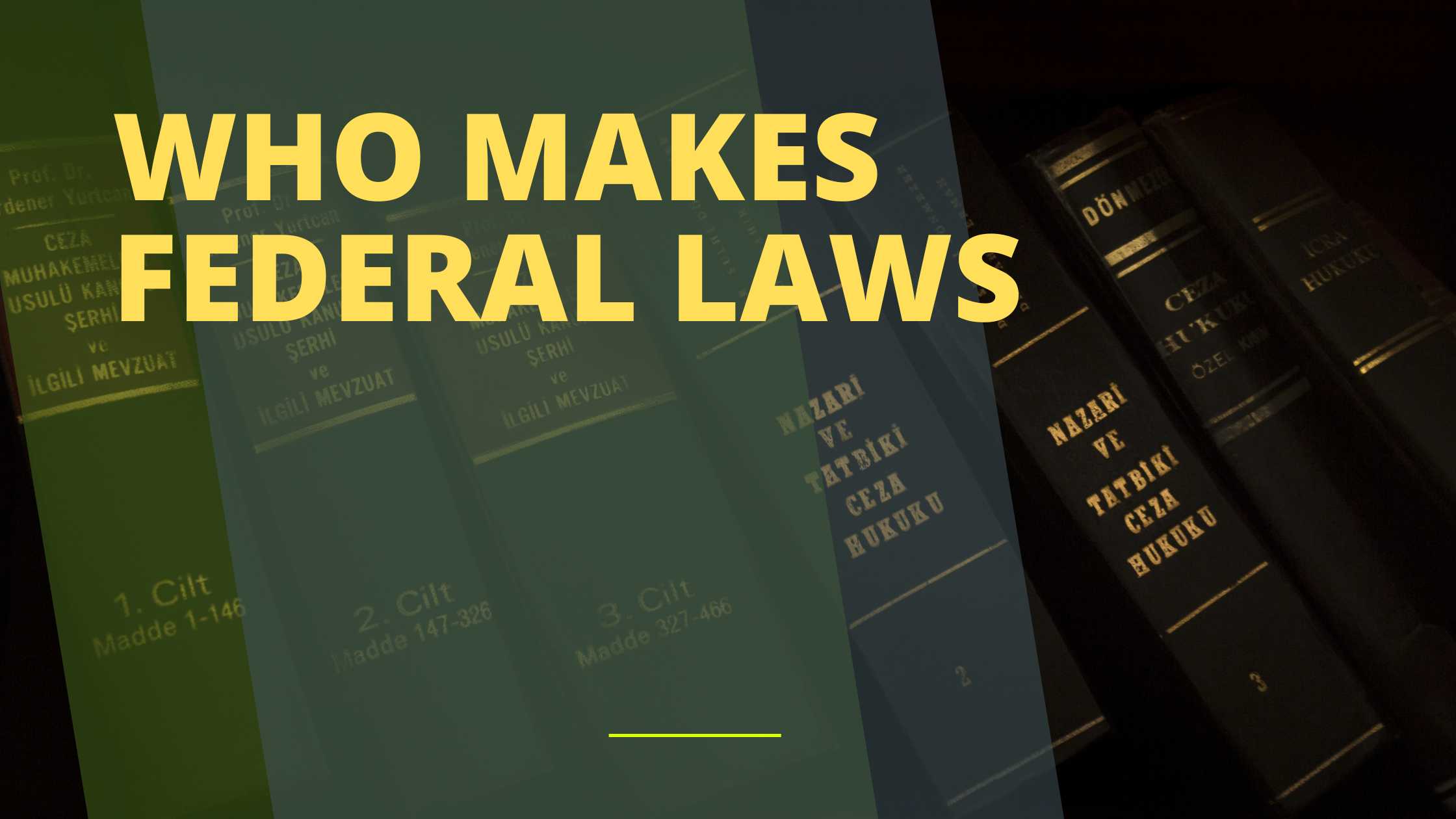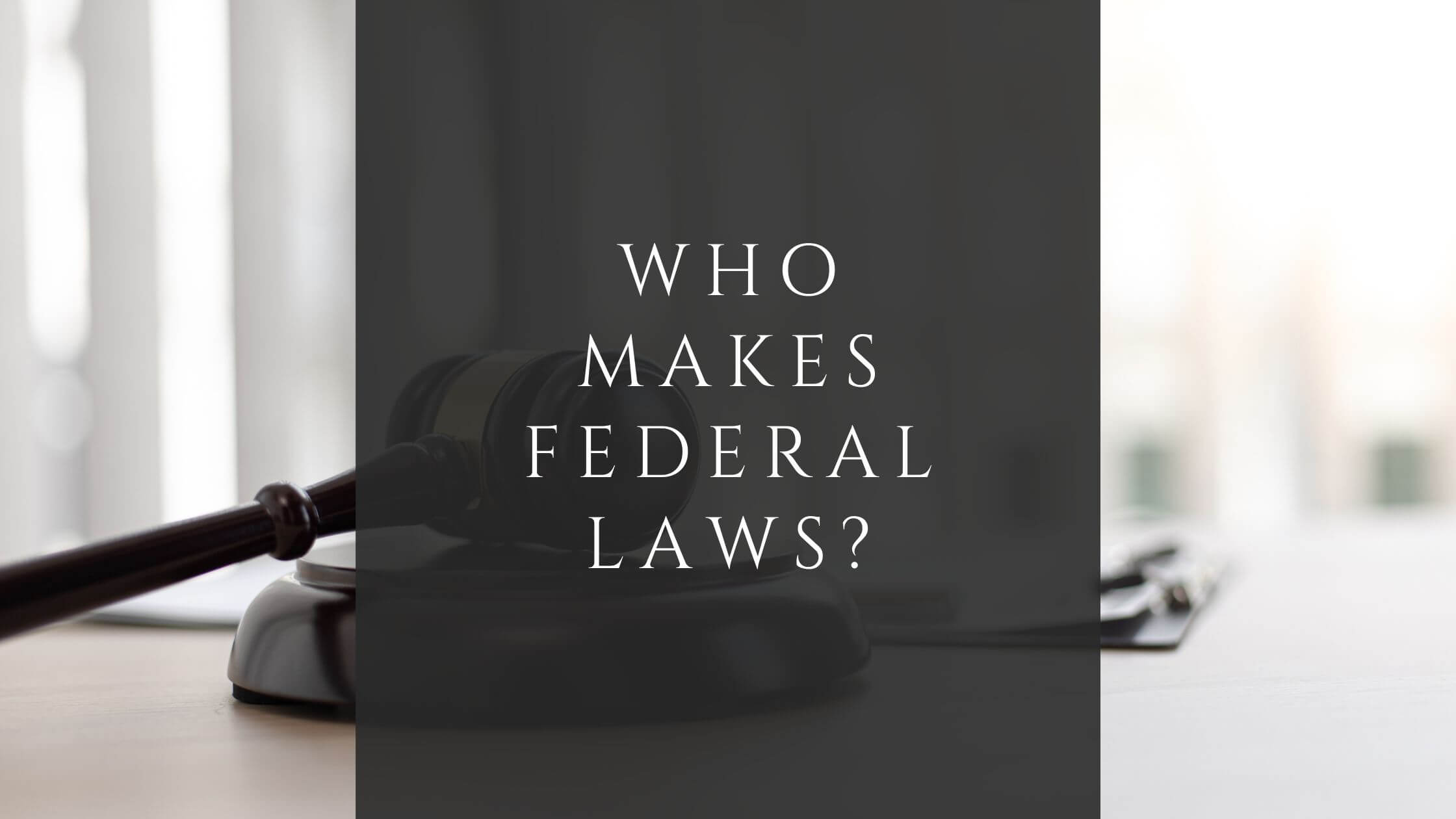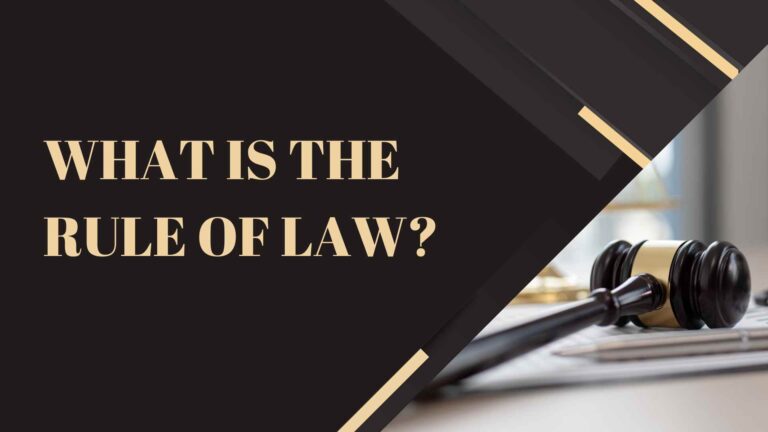Who Makes Federal Laws?

Federal laws in the United States are made by Congress. Congress comprises the Senate and the House of Representatives.
The process of making federal laws is a fundamental aspect of American governance, where elected officials from across the country come together to debate and create legislation that affects all citizens. Each law begins as a proposal, known as a bill, which must pass through various stages of scrutiny, amendments, and approvals in both Congressional houses.
Once both the Senate and the House of Representatives have passed a bill, it is sent to the President, who can either sign it into law or veto it. This legislative process ensures that federal laws are created through a robust system of checks and balances, reflecting the nation’s democratic principles and the diverse interests of its populace. Understanding how federal laws are made is essential for anyone interested in the political process or in holding their representatives accountable.

Credit: constitutionus.com
The Framework Of Federal Lawmaking
Understanding how federal laws are made is key to grasping the workings of the United States government. This complex process involves several steps and various parts of the government. Let’s look at the framework that guides federal lawmaking.
The Constitution As The Starting Point
The U.S. Constitution sets the rules for making federal laws. It gives the framework and limits for all lawmaking activities.
- Article I describes how the Congress makes laws.
- Article II details the Executive Branch’s role.
- Article III gives the Judicial Branch the power to interpret the laws.
Branches Involved In Law Creation
Three branches work together in law creation. This system ensures balance and prevents one group from having too much power.
| Branch | Role in Lawmaking |
|---|---|
| Legislative | Writes and votes on laws (Congress) |
| Executive | Approves or vetoes laws (President) |
| Judicial | Reviews laws to ensure they’re constitutional (Supreme Court) |
Each branch has distinct responsibilities in the lawmaking process, creating a system of checks and balances. This system is vital for a fair and democratic society.

Credit: libguides.oaklandcc.edu
The Legislative Branch: Powers And Processes
The heart of the United States government beats within its Legislative Branch. It holds the significant power to craft laws that govern the country. Let’s dive into the roles of Congress and the steps they take to create federal laws.
Roles and Responsibilities of Congress
Roles And Responsibilities Of Congress
Congress has two parts: the Senate and the House of Representatives. Together, they carry out essential duties set by the Constitution.
- Making Laws: Create new laws or change existing ones.
- Raising Revenue: Decide on taxes and how to spend money.
- Declaring War: Congress can officially declare war.
- Overseeing: Watch over the executive branch.
Steps in Crafting Legislation
Steps In Crafting Legislation
Creating a federal law is a detailed process. It often consists of several crucial steps.
- Idea: A Congress member comes up with a bill.
- Introduction: The bill is brought to Congress.
- Committee: A small group studies the bill.
- Debate: Congress talks about the bill’s merits.
- Vote: Members vote to pass or reject it.
- President: The President approves or vetoes the bill.
- Law: If approved, it becomes a federal law.
The Executive Branch: Presidential Influence
The Executive Branch of the United States plays a pivotal role in the creation of federal laws. While Congress is the primary lawmaker, the President holds significant influence in the legislative process. From signing bills into law to using veto power, the President’s decisions can largely shape national policy.
Signing Bills Into Law
Once Congress passes a bill, it lands on the President’s desk. Here’s how the process unfolds:
- Review: The President examines the contents of the bill.
- Approval: If in agreement, the President signs the bill, and it becomes law.
- Timing: The President has 10 days (excluding Sundays) to sign or veto the bill.
Veto Power And Its Implications
Veto power is a critical presidential tool with far-reaching implications:
- The President can reject a bill by refusing to sign it. This is called a veto.
- Congress can override a veto with a two-thirds majority vote in both the House and Senate.
- An overridden veto means the bill becomes law despite the President’s objections.
A veto sends a strong message and can lead to intense political negotiation. It can also influence future legislation as Congress may seek to avoid a presidential veto.

Credit: slideplayer.com
The Judiciary’s Role In Federal Laws
The judiciary plays a vital role in shaping federal laws in the United States. This branch reviews and interprets the legislation that Congress passes. Its decisions directly influence the application and perceived fairness of laws across the nation. With the power of judicial review and the responsibility to weigh on legality and constitutionality, federal courts ensure laws abide by the Constitution.
Judicial Review
The concept of judicial review gives courts the power to assess federal laws and actions. When a law comes into question, the judiciary examines its details. They decide if a law sticks to the Constitution’s principles. Under this review, courts can invalidate laws that clash with the constitutional framework. This serves as a check on legislative and executive powers, maintaining a balance within the federal government.
Interpreting Legality And Constitutionality
Interpreting legal texts is a core function of the judiciary. Courts delve into the meaning of laws. Judges ensure laws meet constitutional standards. This furthers the rule of law and protects citizen rights. The judiciary also resolves different interpretations of laws. Such clarity is crucial for consistent law enforcement. The Supreme Court’s interpretation becomes the final say on legal meanings.
State Vs. Federal: Understanding Jurisdictions
In the US legal system, both state and federal governments make laws. It’s important to know who holds the power in different areas. States have their own powers, but the federal government can overrule state laws in many cases. Let’s explore how state and federal jurisdictions interact and where one prevails over the other.
The Supremacy Clause
The Supremacy Clause is a key part of the US Constitution. It says that federal law is the “supreme Law of the Land.” This means when state laws conflict with federal laws, the federal laws win. States can’t use their powers to go against national rules.
- States must follow federal laws in areas like defense and money.
- State laws can’t contradict federal regulations.
- US courts resolve disputes between state and federal laws.
Areas Of Exclusive Federal Legislation
The federal government has exclusive power in specific fields. Here’s a list of where only the feds make the rules:
| Area | Description |
|---|---|
| Defense | The military and national defense areas. |
| Currency | Money production and fiscal policy. |
| Trade | Rules for trade between states and international trade. |
| Immigration | Laws about people entering and living in the US. |
| Post Office | Rules for the postal system and mail delivery. |
Public Influence And Lobbying
Public influence and lobbying play key roles in shaping federal laws. Understanding how everyday citizens and organized groups impact legislation helps us grasp the dynamics of lawmaking. This interplay ensures that a diverse set of voices contributes to the legal framework governing our society.
Citizen Participation In The Lawmaking Process
Individuals hold power in America’s democracy. You have the ability to influence law. Your actions make a difference. Many channels exist for you to participate in the lawmaking process.
- Writing to legislators brings issues to their attention.
- Public protests show widespread concern for particular laws.
- Voting in elections impacts the direction of legislative priorities.
- Town hall meetings offer a platform to voice opinions directly.
These efforts keep lawmakers in tune with public needs. They guide decisions in Congress. Your voice matters in this complex system.
The Impact Of Interest Groups
Interest groups represent specific agendas. They wield influence on Capitol Hill. Their goal is to sway policymakers towards specific outcomes. Interest groups often have:
| Resource | Tool |
|---|---|
| Money | Campaign contributions |
| Information | Expert testimony |
| People | Grassroots mobilization |
The scope of their influence shapes lawmaking significantly. It brings expert insights to the table. Nonetheless, it raises questions about the balance of power. It’s crucial to ensure advocacy reflects the will of the many, not just the few.
Conclusion
Understanding the intricacies of federal lawmaking empowers citizens. The legislative branch holds this pivotal role. Through Congress, elected representatives and senators craft laws, reflecting the populace’s will. Engaging with this process is crucial for democratic participation. Stay informed and exercise your civic duty.
Amelia Justiceberg, a distinguished legal luminary, thrives on the intersection of empathy and legal acumen. As a prominent family law attorney, she orchestrates compassionate resolutions amidst complex dynamics. Justiceberg's courtroom finesse and dedication to fairness define her practice. Beyond litigation, she ardently advocates for social justice, solidifying her reputation as an influential force in the legal landscape.






